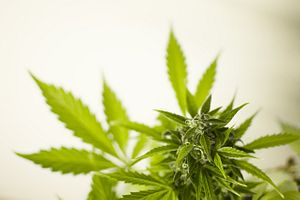Canada recently marked a milestone by legalizing marijuana. Recreational cannabis use in the United States is also advancing; states like California have made global headlines for a progressive marijuana policy for medical and recreational use. But in Japan, marijuana is deemed an illegal drug. Possession is punishable with five years in prison and the possibility of a $17,000 fine. Furthermore, anyone caught in the commercial marijuana trade can face 10 years in prison.
Cannabis possession has come back into Japanese headlines after former boy band and popular idol Junnosuke Taguchi, 33, was arrested in late May for violating the Cannabis Control Act. Taguchi lives with his partner, actress Rena Komie, 38; both are suspected of possessing 2.3 grams of dried marijuana in their shared Tokyo apartment.
The drug control department of the Ministry of Health, Labor, and Welfare says it received a tip off that the couple were using illicit drugs. They were taken into custody after a search of the apartment uncovered the marijuana, along with instruments to crush cannabis and paper rolls. They were both arrested and charged but released on bail for $28,000 after Taguchi pleaded guilty to cannabis use. He also confessed to taking up marijuana 10 years prior. Bail conditions prohibit contact between the couple based on the risk of repeating the crime.
As customary in Japan, Taguchi made a public apology in front of the press where he vowed to never get involved in marijuana and crime again. Taguchi fell to his knees outside the police station and bowed on his hands and knees for 20 seconds. He promised to take an absence of leave from show business in order to make up for his crime and to start afresh to regain public trust. Super fans gathered in the audience cheered support for his mission to “get clean.”
Although cannabis use is fiercely penalized, law enforcement spends a growing proportion of time dealing with marijuana-related drug crime. According to National Police Agency data, 3,578 cannabis-related cases were recorded in 2018 — an increase of 570 cases compared to the year before. Eighty percent of suspects were arrested on possession charges; the remaining 20 percent were arrested on suspicion of cultivation or transporting the substance. The arrests were especially prevalent among young people — 42.5 percent of suspects caught for marijuana possession were in their 20s, with people over 30 the next largest group.
Japan prides itself on vigilantly upholding tight import controls on stimulants, amphetamines, and methamphetamines, which authorities say has prevented drug epidemics like those seen in Europe and the United States from taking root in the country. A Ministry of Health report pointed out that the rate of people who will try cannabis at some point in their life in Japan is almost 40 percent lower than that of the United States and Europe.
But between 2015 and 2017, the cannabis use rate jumped from 1 percent to 1.4 percent which means an estimated 1.33 million people are using the drug. The number of cannabis-related arrests among adolescents is also on the rise. Although the figure steadily declined from 1,880 people in 2009 to 712 people in 2013, the trend has since reversed, climbing back up to 1,519 adolescent arrests in 2017.
A social shift in line with global trends can be seen on social media discussions, with some television personalities bucking Japanese conservativeness in favor of more public debate for legalization. But authorities have shown little interest in moving in that direction.
In fact, as Japan prepares for the Rugby World Cup and the Tokyo 2020 Olympics, with the accompanying influx of foreigners, authorities have warned foreigners to be mindful of strengthened customs searches. Chief Executive of the Tokyo Olympics Toshiro Muto reminded potential visitors that cannabis is not legal in Japan and all suspects will be prosecuted. Speaking through an interpreter, Muro said that while some countries around the world have relaxed rules recently, “Unfortunately, the use of cannabis constitutes a violation of law [in Japan] that needs to be thoroughly communicated.”

































